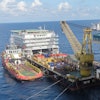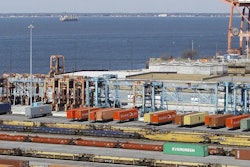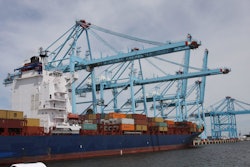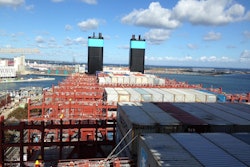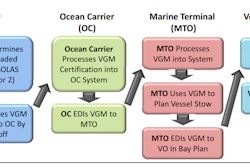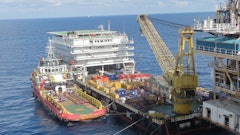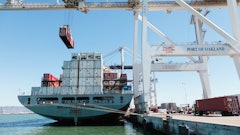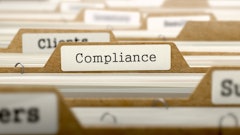
Six U.S. East and Gulf coast operating ports and 19 ocean container lines want to craft a common strategy to meet the Safety of Life at Sea Convention (SOLAS) container weight rule that takes effect July 1, according to Journal of Commerce.
The discussion agreement would try to work out the details of using container weights collected at marine terminals to meet existing Occupational Safety and Health Administration regulations, and has far broader implications beyond the six operating ports. The use of existing operating procedures to satisfy the SOLAS requirement of the sending of a verified gross mass declaration to shippers could also be adopted by marine terminals at landlord ports, providing the industry a rare chance to avoid potential supply chain disruptions while also expending less resources to do so.
The ports, carriers and Ocean Carrier Equipment Management Association on Thursday asked the U.S. Federal Maritime Commission for permission to enter a discussion agreement that would allow them to share information and data relating to the production, use, receipt and transmission of container weight information. That information is critical to the International Maritime Organization’s new Safety of Life at Sea, or SOLAS, rule that forbids carriers from loading containers onto ships without a verified gross mass declaration as of July 1.
The agreement’s parties include the port authorities of Georgia, Houston, Massachusetts, North Carolina, South Carolina and Virginia, as well as the 19 container line members of OCEMA, which will also be filing independently of the group. The ocean equipment group said details of the proposal are still being vetted.
Under the agreement, “any two or more of the parties are authorized to exchange information, discuss and reach voluntary, non-binding agreement upon all matters relating to rules, procedures, programs, practices, terms and conditions with respect to the organization, development, calculation, availability, transmission or use of verified gross mass data.”
The Coast Guard, which is tasked with implementing the rule, on April 29 declared an equivalency with the SOLAS rule. That allows the VGM to be determined via "any equipment currently being used to comply with Federal or State Law, including the Intermodal Safe Container Transport Act, and the container requirement" set by OSHA, according to the Coast Guard.
Five of the six operating ports that have signed on to the agreement have laid out their guidance for export shippers using their facilities. The port authorities of Georgia, Virginia, North Carolina and South Carolina have all said they will admit containers to their terminals sans VGM come July. Container terminals in Georgia, Virginia, South Carolina and North Carolina have offered to provide container weights to exporters at no cost.
The Port of Houston, on the other hand, has said it will deny access to its terminals for containers that arrive without electronic documentation of their verified gross mass after the new rule takes effect. Massport has yet to publicly disclose its VGM policy.
To read more, click here.
Editor's Insight: The U.S. Coast Guard, the nation’s maritime enforcement service, has already issued a bulletin stating that the U.S. regime for providing verified container weights to ship masters is equivalent to the SOLAS requirements. The Coast Guard is the nation’s enforcer of maritime rules.
This announcement indicates that the Ocean Carrier Equipment Management Association is working to simplify the container weight rule. It remains to be seen, however, how another set of rules will simplify compliance with the container weight requirement. 5-20-16 By Elliot Maras

